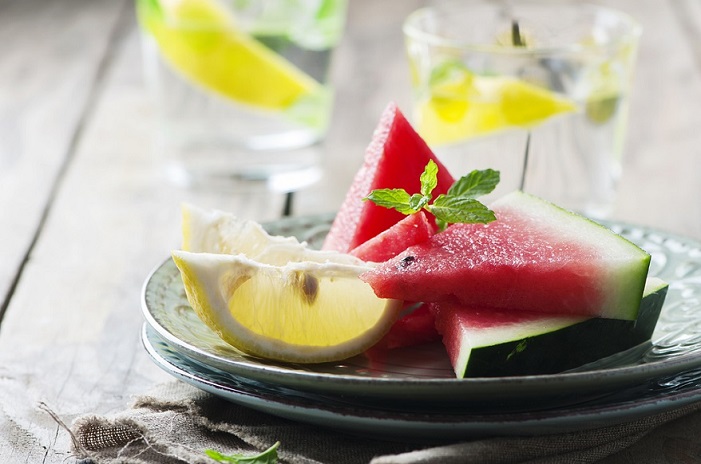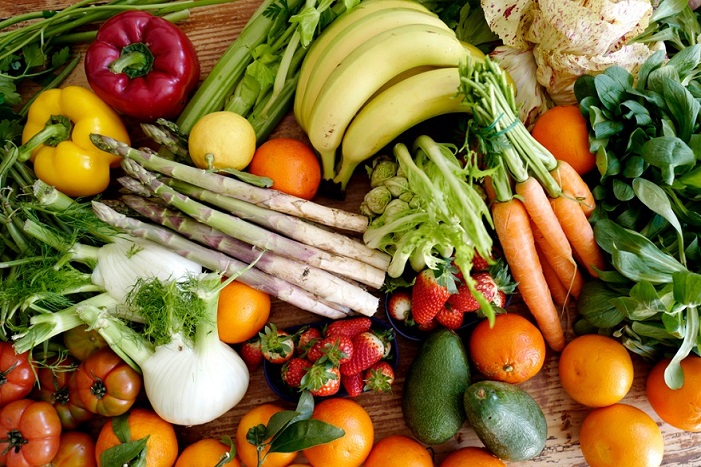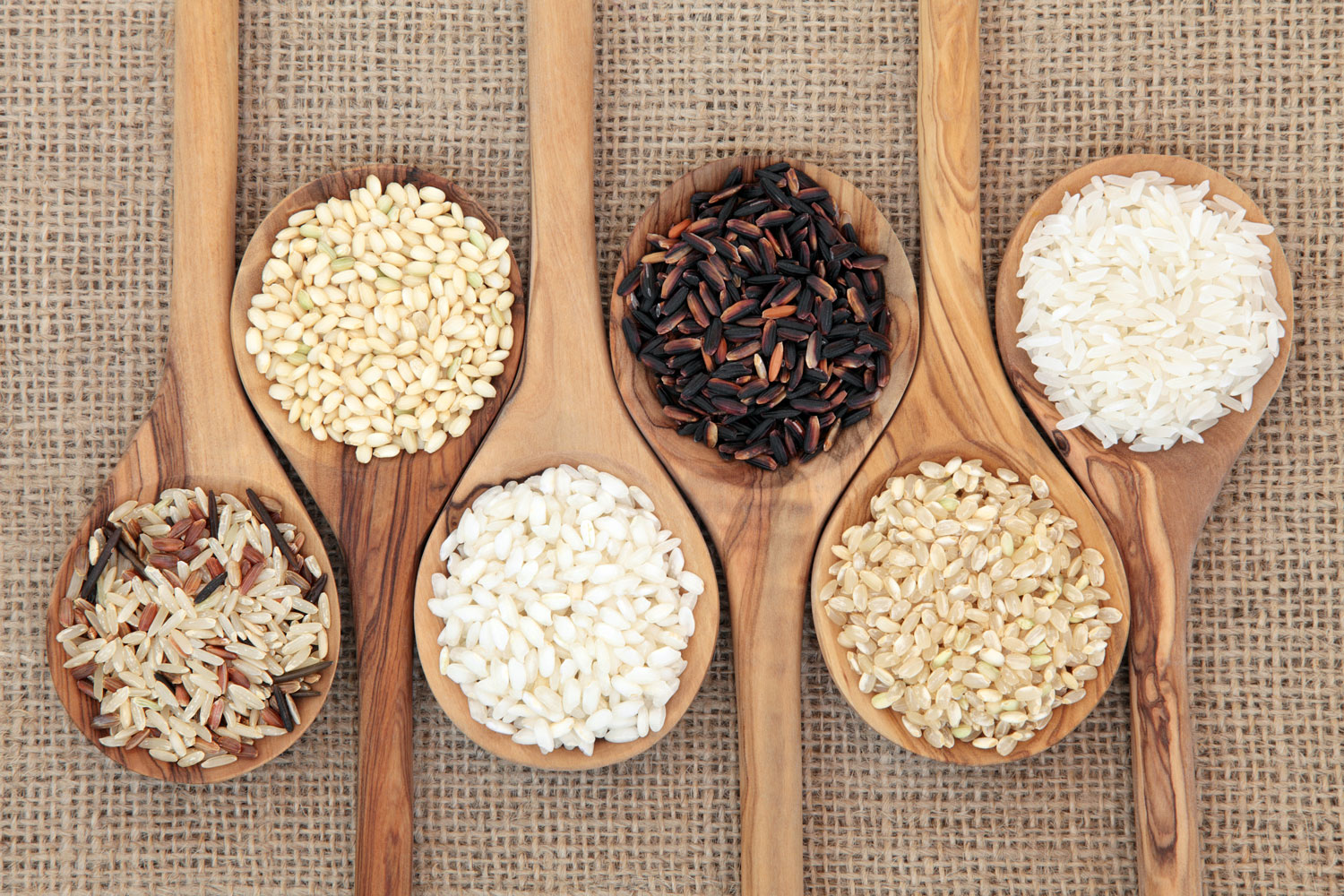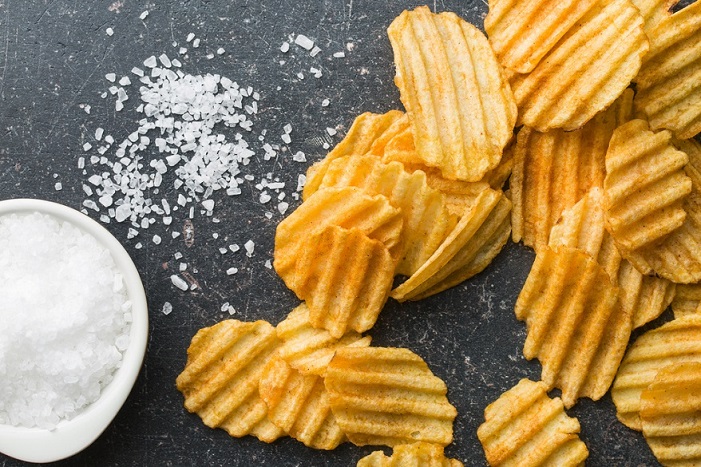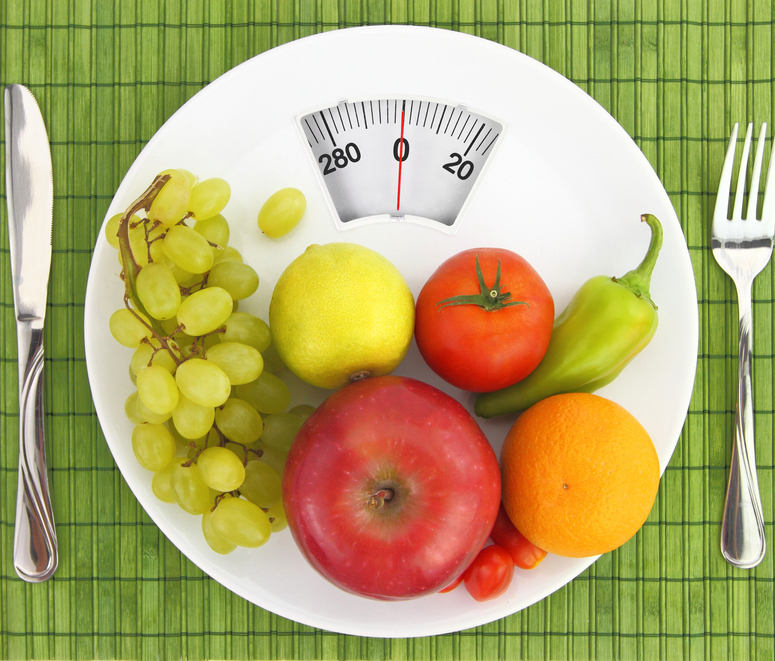SUMMARY
Eating and drinking certain foods can lead to bloating, especially if they have a lot of sodium, which causes our bodies to hold extra water. Try these plant-based foods that can reduce bloating and gas.
Bloating is a condition when our stomach feels extremely tight and full. This often happens due to gas or water retention.
We feel bloated when we are constipated, which can contribute pain in our abdominal area, according to John Hopkins Medicine.
Eating and drinking certain foods can lead to bloating, especially if they have a lot of sodium. Too much sodium might cause our bodies to hold extra water.
However, there are other foods you can eat that can reduce bloating and gas.
Here are a few of the plant-based foods that can help relieve or prevent that puffy feeling.
1. Lemon
Lemons are a natural diuretic and a gentle laxative. Lemon helps keep food moving through your digestive tract and flush out excess water.
2. Rosemary
Did you know that the herb is also used to treat indigestion and bloating?
Rosemary can calm the stomach and help reduce over digestive activity. Plus it has anti-inflammatory properties that can help eliminate the bloat, according to Be Well Buzz.
Steep some rosemary in your next cup of tea or combine it with some celery to make a broth.
3. Ginger
Although ginger is known for aiding when you have a cold, a sore throat or achy muscles, it can help fight the bloat too.
Ginger is a natural anti-inflammatory and aids with healthy digestion. It can soothe the digestive system and relax the muscles of the digestive tract according to Health contributing nutrition editor Cynthia Sass, MPH, RD.
Also, in a recent study, participants who consumed a small amount of ginger powder before a meal saw a 50% increase in the emptying of their stomach.
Ginger has a strong spicy taste, so feel free to add it to your main dishes and salads for some extra flavor.
4. Bananas
Keep an eye out on your overall potassium-sodium level. It appears that high potassium levels can reduce water retention in two ways, by decreasing sodium levels and increasing urine production.
Bananas have a high potassium level so they can aid with reducing your bloating symptoms.
Did you know that one medium banana has 422 milligrams of potassium? Just one banana alone can help fight the bloat.
If you need an extra boost of potassium, add sliced banana to your oatmeal, fruit salads, or smoothies.
5. Papaya
Inside of this tropical Mexican fruit is a white, milky substance called papain, a proteolytic enzyme, that help promotes a healthy and regular digestion and prevents constipation, according to Medical News Today.
Papaya also contains choline. Choline aids in reducing chronic inflammation and aids in fat absorption.
According to Medical News Today, not only can papaya can help with the bloating, but it can also help reduce heart disease, keep your hair feeling moisturized with it’s Vitamin A, and lower blood sugar levels in type 1 diabetics.
Papaya may not be the most popular fruit because of its taste and smell, nor is it easy to find in your standard grocery store, but it is still worth giving a try.
Add papaya to your fruit salads, smoothies, and other dishes.
6. Cucumber
Cucumbers are a great way to deflate a puffy tummy because they have quercetin, a flavonoid antioxidant that helps reduce swelling/bloating, according to Health contributing nutrition editor Cynthia Sass, MPH, RD.
The high water density (96%) and fiber content (2g) can increased your frequency to the bathroom, which can help you feel less full and help release your excess water and toxins.
Slice up some cucumber and add it to your water and salads.
7. Celery
Celery has flavonols and flavone antioxidants which are known to help decrease fluid retention. Their seeds are a natural diuretic, according to the University of Maryland Medical Center and that’s why celery is commonly used as a digestive aid to regulate bowel movements and control intestinal gas.
People like to talk bad about celery because it doesn’t have a lot of nutritional value, but they do. Live Science says that celery contains vitamin C (2%), vitamin A (4%), and potassium (3%).
Add celery to your salads, main dishes, and your vegetable juices.
Last Remarks on Bloating
Keep in mind that when you’re bloated, it’s best to lean toward cooked veggies over raw. The fiber structure is broken down when vegetables are cooked which makes them easier to digest.
Eat as much as you can of these foods listed on a daily basis to help you reduce your chances of bloating.
Remember that bloating is a temporary state and not a reflection of the actual size and shape of your normal body.
Once you have eliminated the bloated feeling, you will feel like your normal self again and give you mental relief. Even if you might suffer through a few more days of physical discomfort.
Fresh N Lean is the nation’s largest organic meal delivery service. Our tasty, chef-prepared cuisine is always fresh and never frozen, and we offer convenient meal plans like Protein+, Keto, Paleo, Standard Vegan and Mediterranean. Choose Fresh N Lean for affordable nutrition, delivered to your doorstep.
